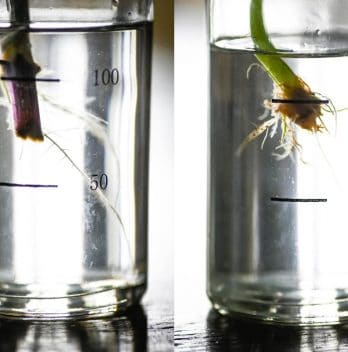Undoubtedly, the best mycorrhizal products play an important role in plant growth-enhancing the roots, which are a major part of plant development. These fungi help enhance the
Mycorrhizal fungi are common in all types of
Mycorrhizal fungi do not plant roots. They behave similarly to plant roots. Like roots, they burrow into the
Given that this excellent association is natural adding more mycorrhizal fungi to the
Types of the Best Mycorrhizal Products
There are two groups of mycorrhizal fungi – ectomycorrhizal and endomycorrhizal fungi.
The Ectomycorrhizal Fungus
This fungus develops on the exterior of the root cells. Ectomycorrhizae are found in natural environments, mainly in trees or forest ecosystems. They form visible reproductive mushroom-like structures at the feet of the trees they inhabit. This fungus grows between root cells without penetrating them. It is symbiotic with spruces, pines, and most hardwood trees like oak, willow, and beech.

The Endomycorrhizal Fungus
This fungus penetrates plant cells where direct metabolic exchanges occur. It colonizes shrubs and most herbaceous plants without forming visible structures. In the endomycorrhizal fungi class, arbuscular mycorrhizal is the most prevalent in soils. Its name comes from the structures it forms in the plant root cell: the arbuscular. Arbuscules are finely branched root structures. They form within a cell and serve as a metabolic exchange between the fungus and the plant.
Other types of mycorrhizal fungi only exist in nature and are given to specific families of plants. These types are unavailable in commercial products; you can only get them in nature. They include the Orchids, Ericoid, and Arbutoid (the ericaceous family).
Read more about How to make a homemade Root Hormone
Benefits of Using the Best Mycorrhizal Products
- Encourages vigorous root development
- Produces healthy plants
- Increases plant establishment rate during transplanting
- Reduces transplanting shock
- Enhances flowering and fruiting
- Improves yields and crop quality
- It helps maintain
soil quality and nutrient cycling - Increases the
soil ’s tolerance to salinity - Reduce disease occurrence
Best Mycorrhizal Products in the Market Today
Now that we have understood some facts about fungi, let’s check out some of the best products on the market.
Xtreme Gardening, Mykos Pure Mycorrhizal Inoculant
Mykos mycorrhizal is an organic and natural fungus. It creates a sponge-like mass highly beneficial to the
Mykos is a fast-growing beneficial fungus that does not contain any other microbes like the ectomycorrhizae of Trichoderma. This fungus breaks down, cycles, and retains nutrients. It also provides a front-line defense against ecological stresses. Once administered, Mykos will continue to grow and become an extension of the roots. It does this while administering better sustainability and efficiency. The larger and healthier the root system, the more yields the plants produce.
Pros
- It helps new plants absorb transplanting shock
- Stimulates new root growth
- Increases root mass, resulting in more nutrients and moisture absorption
- Transports nutrients over large distances and delivers them directly into the root cell
- Protects your plants from heat stress and drought
- It keeps harmful pathogens from reaching the roots
- Improves
soil structure of sandy and claysoil - Creates strong roots fast
Cons
- Individual plants can connect with other plants through the mycorrhizal network. Even where it’s unwanted, it connects and shares nutrients, water, and sugars.
Ultra Concentrated Mycorrhizae for Plants Strong Roots & Living Soil, Trifecta Myco Supreme Plant Root Stimulator for Tree, Rose and Flowers
Myco Bliss Powder – Highly Concentrated Mycorrhizae
This fungus is essential to
Pros
- Grows secondary roots systems fast
- Improves uptake of water and nutrients
- One treatment lasts a lifetime, making it affordable to use
- Helps with replant problem
- Restores almost dead trees with a lifetime vigor
- Reduces Fertilizer Dependency
Cons
- Works best on trees, not plants and vegetables
Myco Bliss Powder (1lb) – 5 Strain Mycorrhizal Inoculant with 1,000 Propagules per Gram
Root naturally Endomycorrhizal
This is a granular mycorrhizal that consists of 4 species of endomycorrhizal fungi. These are Glomus intraradices, G. etunicatum, G. mosseae, and G. aggregatum. Almost 85% of world plant species form a symbiotic relationship with fungi including trees and vegetables. The fungus increases the effectiveness of rooting in plants. This supports the plant growth, tolerance, and vigor of any ecological extremes. The mycorrhizal propagules promote plant quality and crop performance with their rooting ability.
Pros
- Supports faster plant establishment
- Accesses water beyond the root zone and delivers to the plant’s vascular network
- Absorbs and delivers nutrients to the roots
- Improves
soil nutrients use - Improves root biomass
- Absorbs and transports
soil moisture from beyond the root zone to the plant’s roots - Improves stress tolerance
Cons
- It is only useful to common plants and vegetables but not trees
- Granular
- Packaged in easy scoop white jar
- 4 Species Endo-Mycorrhizae (Glomus intraradices, G. mosseae, G. aggregatum, G. etunicatum)
- 60,000 Propagules/lb
What Plants Need Mycorrhizal Fungi?
Several plants benefit from mycorrhizal fungi. These include:
Trees
Oak, pine, and spruce tree species can benefit from mycorrhizal fungi. It can help them extract nutrients and water from the ground by fusing with their roots.
Shrubs
Blueberry, rhododendron, and azalea shrubs are some of those that benefit from this fungi. It can help shrubs obtain more root power and increase their tolerance to environmental stresses.
Vegetable Crops
Carrots, peppers, onions, potatoes, and herbs can benefit from mycorrhizal fungi. It can help increase vegetable resistance against diseases and ensure they get more nutrients from the
Is Mycorrhizal Fungi The Same as Rooting Hormone?
Mycorrhizal fungi and rooting hormones are two different things. However, both can be used to help plants thrive.
Rooting hormones are applied to the cut ends of plants. It helps them develop roots more quickly. You can use a rooting hormone to increase your success rate when propagating plants. Contrarily, mycorrhizal fungi are applied to the
Where Can I Buy Mycorrhizal Fungi Near Me?
There are several places you can buy mycorrhizal fungi. Here are some suggestions:
Local Garden Centers
Nurseries and garden centers carry a variety of gardening supplies. Most stock mycorrhizal fungi. You can visit a garden center near you and ask the staff if mycorrhizal fungi are available for purchase.
Online Retailers
Many online retailers specialize in gardening supplies. Others stock it as part of their general inventory. You can search for retailers near you or those that deliver in your area.
Specialty Stores
You may find mycorrhizal fungi for sale at specialty stores focusing on organic or sustainable gardening supplies. These stores may be more likely to carry a variety of products, including mycorrhizal fungi.
Manufacturers
Going directly to manufacturers is another option. You might find one that sells to the public. Many companies that produce mycorrhizal fungi have websites that allow you to purchase their products online.
How Often Should I Apply Mycorrhizal Fungi?
Many factors influence how often you’ll need to apply mycorrhizal fungi to your
Follow The Manufacturer’s Instructions
You should also look at the specific instructions provided by the product manufacturer. These instructions will provide the most accurate guidance on how often to apply the mycorrhizal fungi.
Apply Mycorrhizal Fungi at Planting Time
Mycorrhizal fungi are typically most effective when applied to young plants or at the time of planting. This allows the fungi to establish a relationship with the plant’s roots and help the plant absorb water and nutrients more efficiently.
Reapply Mycorrhizal Fungi As Needed
If you use mycorrhizal fungi to help establish new plants or improve plant health, you may need to reapply the product regularly. The specific frequency will depend on the needs of your plants and the particular product you are using.
What Can I Use Instead of Mycorrhizal Fungi?
If you do not want to use mycorrhizal fungi or can not find any, you can use compost, fertilizers, or animal manure. These alternatives can provide many benefits to your plants. However, they may not benefit your plants as mycorrhizal fungi can. You should determine your specific needs and choose an alternative based thereon.
What Eats Mycorrhizal Fungi?
Mycorrhizal fungi can be damaged or destroyed. You should avoid chemical pesticides and limit physical disturbances. Excessive moisture or dryness can also damage the fungi. Taking steps to protect and preserve the mycorrhizal fungi in your
How to Breed Mycorrhizal Fungi
Breeding mycorrhizal fungi can be a complex process that requires specialized knowledge and expertise. If you are interested in breeding these fungi, I suggest seeking guidance from a professional in the field. Alternatively, you can keep these steps in mind:
- The first step in breeding mycorrhizal fungi is to isolate individual strains. You can do this by using surface sterilization or culturing techniques.
- Once you have isolated particular strains, you can select specific traits. Good traits include their ability to colonize the roots of individual plant species or withstand certain environmental conditions.
- Next, you need to cross-breed your selected strains to create new fungi with the desired traits.
- You should test the resulting mycorrhizal fungi strains to ensure their effectiveness.
- If your resulting strains are effective, you can mass-produce them for personal use or sale.
Conclusion
Roots are very important to a plant. They anchor the plant in place, resisting the forces of nature like wind and running water. They take in oxygen, water, and nutrients from the








